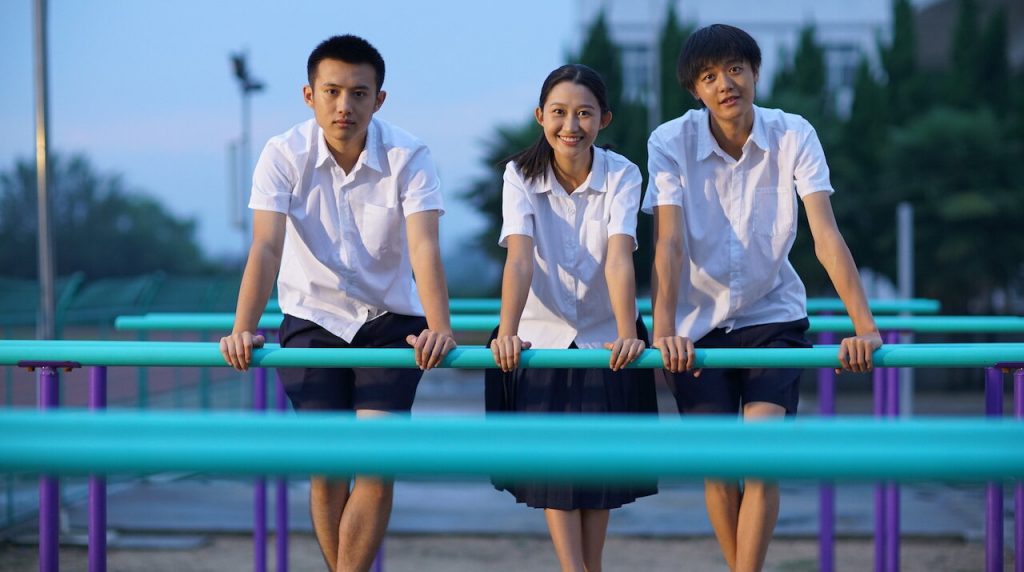Ning Yuanyuan grew up immersed in the traditions of Chinese cinema and among those who were charting its contemporary course. Ning’s father, Zhang Yuan (Beijing Bastards, Seventeen Years) and her aunt, Ning Ying (I Love Beijing, On the Beat) are two of the most prominent figures of what’s known as China’s “sixth generation” of filmmakers, while her mother, Dai Ning, has worked as a screenwriter on the likes of Little Red Flowers (2006). But the 22-year-old Ning always wanted to do things in her own way. “I wanted to try and start looking for my own style, that’s why they [her family] didn’t really help me with this movie,” Ning explained.
Ning was speaking during the staging of this year’s Far East Film Festival, hosted via Udine, Italy, but staged online for its 22nd edition due to the ongoing global Covid-19 pandemic. Her debut feature An Insignificant Affair had its world premiere at FEFF, which ran from June 26 to July 4.
The film follows a high school boy (Dong Bowen) and a girl (Ning) who get caught holding hands, a totally inoffensive act which gets judged as inappropriate by the society that surrounds them. This “insignificant” act draws the whole school into a furore regarding the situation and both students are required to read a self-criticism in front of their colleagues. Things then turn Kafkaesque as they have to keep rewriting the self-criticism, repeatedly, and then everything they have been accused of actually starts happening, for real.
On the surface, An Insignificant Affair might seem just a sweet little love story, but what’s really interesting are its dark undertones, with its two main characters having to fight both the school and their families. The inspiration for the movie came from a novel by Ye Xiaobai, roughly translated as “The Love for Coldness”, and, more specifically a chapter in it called “Break up Agreement”. “That chapter made a deep impression on me because I never experienced this ‘first love’ from the guy’s point of view,” said the actor/director. Included in the chapter is a scene where the boy looks up from reciting his self-criticism, only to see all his classmates (apart from the girl) have turned into pumpkins. It’s a funny – and telling – reflection of his inner thoughts.
“It was the first thing I read from the book and it was what made me want to shoot this film,” said Ning. “I wanted to transform the scene into a big and powerful image. [Ye] helped me with the male side of the story. We are both young – he’s 26 years old – so our high school experiences are still pretty fresh in our minds”. Ning said she was also keen to explore the issue of first love. “First love from a child’s perspective is different than from an adult,” she explained. “Adults have already forgotten their own first love and they apply their adult thoughts when they try to talk about young people’s experiences.”
The movie is set in 2008 in the water-side city of Taizhou, in the mid-east China but was actually shot in a village down south. “It was very fun as most of the crew were young, some of them even my university colleagues, so it was like going to a camp with friends,” said Ning, who said she turned to older crew members for advice, when needed. “A director needs a very strong vision, and I wanted to have my own style, but still I listened to them and I learnt a lot,” she said. The year of the setting, 2008, was a pivotal moment for China, with the staging of the Olympics seen as a point when the country opened itself up to the world. Ning said she wanted to use it to reflect their period of change, both for characters and for their country. It was a very important year for China, especially for little towns like the one in the movie,” explained Ning. “Even in this little town everyone is excited to go out, to be part of the change that China is having.”
The film reunited Ning with Dong, 14 years after they starred together in her father’s acclaimed feature Little Red Flowers (2006), and next up for Ning is a return in front of the cameras, as she has finished shooting with award-winner director Wang Xiaoshuai (Beijing Bicycle) on his latest project. “I learnt a lot from him,” she said. “He trusted me a lot and gave me a lot of freedom to express myself, also the character is pretty similar to myself, so I was very comfortable.”
In terms of the future, the young filmmaker said she wanted to continue to expand her repertoire – and her talent. “I actually prefer acting, it’s what I studied and what I really want to keep doing,” revealed Ning. “But if I ever read a novel or a script that I really want to adapt into a movie I might try to direct again.”
-Josep Santcristofol was part of the 2020 FEFF Campus programme
To see more, please visit the Far East Film Festival’s website.






